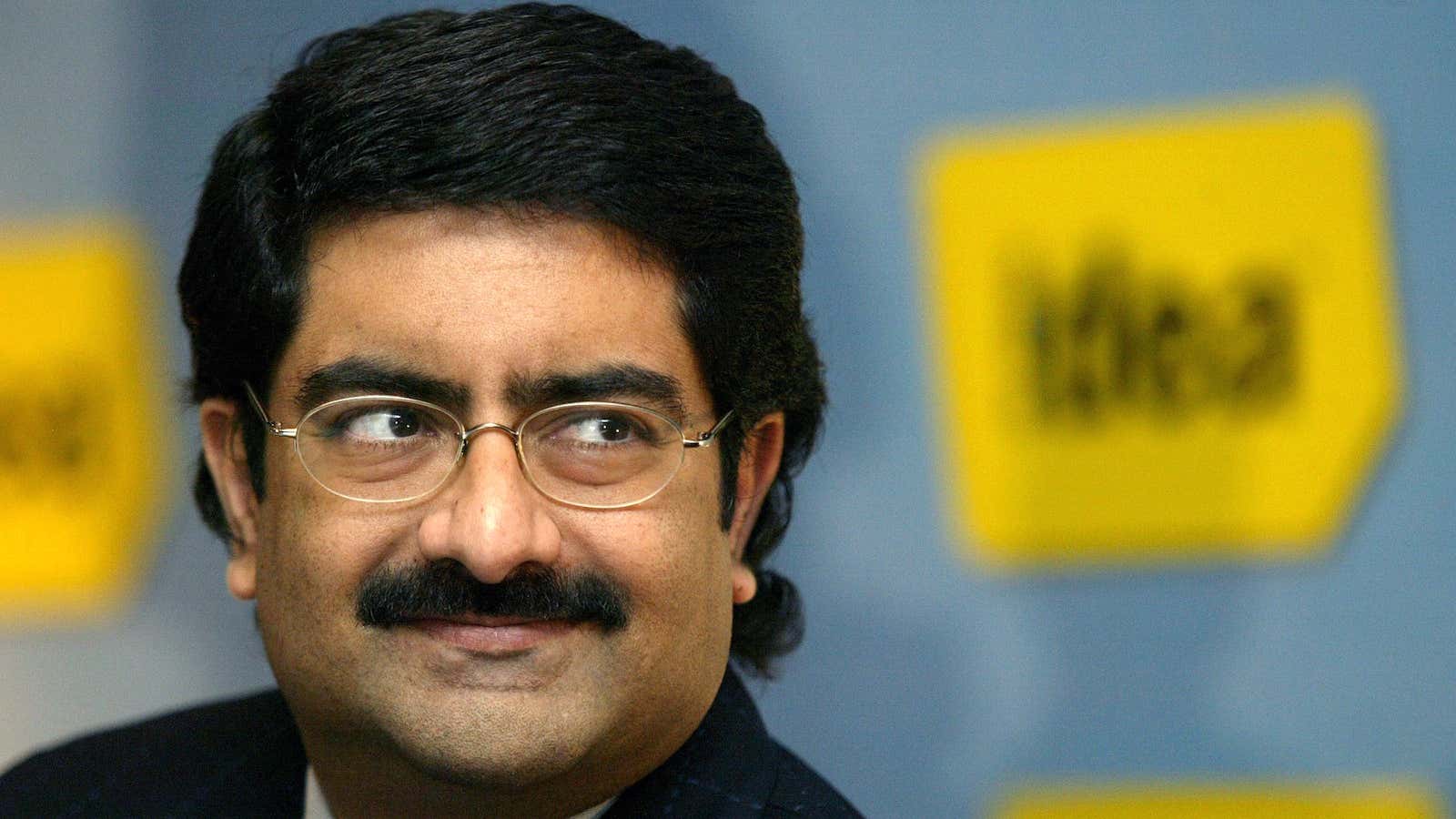Amid India’s e-commerce boom, the country’s largest branded apparel company—a decidedly brick-and-mortar entity—has just been born out of a merger.
Indian billionaire Kumar Mangalam Birla, chairman of the $40 billion (Rs2.4 lakh crore) Aditya Birla Group, has decided to bring all his garment businesses under one company, which together adds up to annual sales of over Rs5,000 crore ($785 million).
“This consolidation will create India’s largest pure play fashion & lifestyle company with a strong bouquet of leading fashion brands and retail format,” Birla said in a statement.
The new retail behemoth will have a network of 1,869 stores across India. And it plans to add 250-300 branded stores—and 30-35 departmental stores—every year for the next three years. Branded stores will include Madura’s own brands like Van Heusen, Allen Solly and Louis Philippe, among others.
“The consolidation will also enable tapping of operational synergies on various fronts such as sourcing, real estate and technology platforms,” the group explained.
The arrangement includes merging the existing Madura Garments Lifestyle Retail and Pantaloons Fashion Retail India into a new entity called Aditya Birla Fashion & Retail. Currently, Madura Garments is a part of Aditya Birla Nuvo (ABNL), a conglomerate with businesses like finance, telecom, fertilisers, and manufacturing, while Pantaloons—which the group acquired from Kishore Biyani’s Future Group in 2012—is a separate listed subsidiary of ABNL.
Industry in churn
The consolidation comes at a time when brick-and-mortar stores are going online in the face of swiftly growing competition from e-commerce firms. Online fashion retail market is expected to reach $35 billion (Rs2.22 lakh crore) by 2020, according to Google India.
In 2013, India’s apparel industry—organised and unorganised—was worth $41 billion (Rs2.6 lakh crore), and is estimated to grow at a compounded annual growth rate (CAGR) of 9%, reaching $102 billion (Rs6.5 lakh crore) by 2023, according to Technopak, a retail consultancy. This growth will be largely driven by rising per capita consumption and an increase in the average spend on apparel.
“The apparels category is the largest contributor to the organised retailing market in India which is expected to grow at a robust CAGR of 18% over next few years,” the Aditya Birla group said.
Meanwhile, India’s overall online retail industry has grown at around 56% from 2008 to 2013, according to a report (pdf) from credit rating agency, CRISIL. It estimates the market will grow to Rs50,400 crore ($8 billion) by 2015-16.
And Birla agrees that offline retail stores will be impacted by this unbridled growth in online consumption. ”The growth rate will slow down because of the emergence of e-commerce,” he said in an interview after the announcement.
“But our brands are leading brands in their segment; they are firmly entrenched,” he added.
Indian apparel companies also have to thwart competition from foreign brands. High street fashion label Zara, American apparel sellers Gap and Forever 21, and the Swedish retailer H&M have all entered the Indian market in the last few years. And all of them have big ambitions.
Forever 21, for instance, is targeting revenues of Rs500 crore ($78.5 million) by November this year. And Gap is planning to open 40 stores in the country, starting 2015.
